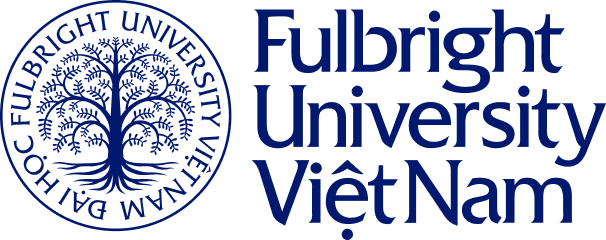
Currently a third-year Computer Science student, Nguyen Khanh Thuy Duong is an active participant in community-oriented projects involving Artificial Intelligence (AI). Among the initiatives she has contributed to is the “Braille Music Library” project, which applies AI to assist visually impaired individuals in reading and learning music in Braille. This project won first place at the 2024 Accessibility Design Competition for developing assistive tools for people with disabilities.
Choosing Fulbright for the opportunity to discover her potential
Before embarking on her Computer Science journey at Fulbright University Vietnam, Thuy Duong, who was previously an English major, initially considered studying psychology or economics. However, despite these being conventional choices, she felt uncertain and lacked a true passion for these fields. It was at this point that she learned about Fulbright’s four-year education, which allows students to explore different disciplines through interdisciplinary courses and projects during the first two years, helping them identify their interests. This unique opportunity led her to choose Fulbright.

Faced with the uncertainty of choosing a career to pursue, Thuy Duong spent the first 2 years experiencing interdisciplinary subjects to explore her potential and listen to herself for an important choice.
Duong recalls being particularly impressed by her first class, Quantitative Reasoning, which provided her with essential knowledge in mathematics and coding to solve and analyze real-world problems. This experience sparked her interest in subjects like Data Science and Computer Science as a whole.
Despite her enthusiasm, Duong admits that she often felt pressure due to her peers’ backgrounds in science and engineering, unlike her own background in English. When starting Computer Science courses alongside classmates who had a stronger foundation in STEM, she questioned her own abilities and worried about keeping up. Nonetheless, she learned to transform her fears into motivation, adopting a mindset of “if I haven’t mastered it yet, I’ll just keep trying harder.”
Her perseverance paid off, and in the summer of 2023, she secured an internship at Intel, one of the world’s leading semiconductor technology companies. “You just need to keep trying; it’s not that you lack capability,” she said.
Applying interdisciplinary knowledge and skills in community-focused computer science projects
For Duong, learning extends beyond textbooks and classrooms; it is about putting knowledge into practice. She has gained valuable experience and grown significantly through participating in projects at Fulbright. As a core member of the “Braille Music Library” project, Duong and her teammates utilized AI and Computer Science to help visually impaired people read and learn music in Braille. She is also involved in a research project on Mindful Eating, which explores the eating behaviors and stress levels of young people, aiming to develop a tool that helps them understand their health and find ways to “heal” themselves.

Thuy Duong and her teammates cheered with excitement when when the project “Braille sheet music library” successfully won the 2024 Accessibilty Design Competition for people with disabilities.
One aspect that excites Duong about these projects is the ability to apply interdisciplinary skills and knowledge. For instance, the Braille Music Library team comprised students from diverse fields such as Computer Science, Vietnam Studies, Economics, and Psychology—something that, she notes, is rarely seen outside Fulbright. Additionally, the team received close guidance from faculty members and mentors.
Through these experiences, Duong has honed important skills: technical expertise in AI, including programming, algorithms, and practical AI applications for community-beneficial projects; soft skills such as teamwork, problem-solving, and analysis gained through collaboration; and, crucially, self-learning. In addition to coursework, she often sought out additional resources independently to find the best solutions for her projects. This self-directed learning is especially essential in the rapidly evolving field of AI, where staying updated with new knowledge and skills is vital.
A message to young aspiring computer scientists: All you need is a computer to start learning
Looking ahead, Thuy Duong hopes to spend a few years working in AI to gain practical experience before pursuing a Master’s degree in the field.
To young people interested in Computer Science and AI, she advises: “Anyone can start learning Computer Science, as there are countless resources available online, and the only thing you need is a computer. As long as you remain persistent and put in the effort, you can succeed in this field. Moreover, actively seizing learning opportunities and applying knowledge to real-world situations will open up new experiences, broaden your horizons, and enhance your expertise.”
Thao Chi








